Fordham Hosts Tenth Annual Research Symposium

Fordham Hosts Tenth Annual Research Symposium
128 student researchers displayed their findings in the McGinley Ballroom at the Undergraduate Research Symposium.
128 student researchers displayed their findings in the McGinley Ballroom at the Undergraduate Research Symposium.
May 2, 2017
Hang on for a minute...we're trying to find some more stories you might like.
Email This Story
By Victor Ordonez

128 student researchers displayed their findings in the McGinley Ballroom at the Undergraduate Research Symposium. (Victor Ordonez/The Fordham Ram)
Fordham University held its tenth annual Undergraduate Research Symposium on Wednesday April 26. Students and faculty of various departments and fields gathered in the McGinley Center ballroom to display their research findings and discoveries.
The symposium celebrated the accomplishments of 237 various undergraduate students and the faculty who mentored their research. Maura Mast, dean of Fordham College Rose Hill, said “the work of our students and faculty reflects a deep commitment to academic excellence and a desire to grow knowledge and share it with ours.”
At the first Undergraduate Research Symposium at Fordham Rose Hill, 34 students presented posters on their research, according to a letter addresses to attendees from Rachel Annunziato, associate dean for strategic initiatives. For the tenth annual Research Symposium, 128 of the 327 ongoing research programs presented posters.
Specifically, the symposium featured 128 posters and 40 oral presentations that summarized the results of research projects across departments, including music, urban studies, history, anthropology, computer science, biology and integrative neuroscience.
Integrative neuroscience major Carlos Viera, FCRH ’17, researches smoking succession laboratory and presented his work at the symposium. He runs a mindfulness training program for depressed smokers and distinguishes between major depression and bipolar disorder.
Viera is also observing the relationship between distress tolerance and mindfulness as they may be related to a smoker’s attempts to quit. He works with 26 patients who are all daily smokers, of which 21 are women. All are currently receiving treatment at Montefiore for depression or bipolar disorder.
Viera found that distress tolerance is highly and positively correlated with mindfulness and gender discrepancies. “We found that women have less success in quitting smoking,” said Viera.
Psychology major Graziella Ferrara, FCRH ’17, conducted research titled “Measuring the Validity of Parent Report vs. Child Self-Reports of Emotion Dysregulation.” The study consisted of reports from a random sample of 33 children with ADHD and 33 parents recruited from ongoing studies at the Pediatric Emotion Regulation Lab at Fordham University.
“The data suggests correlations between parent reports of children’s anger and child self-reports of anger,” said Ferrara. “Further analyses will be conducted to determine the effects of the child’s age in understanding the potential discordance between parent and child reports, as well as the employment status of the parents to consider their presence in the lives of their children.”
Ferrara said that the implications of this study may be used to assess the validity of the Children’s Inventory of Anger (CHIA) reports. The study could assist in future prevention and treatment plans of children with temper outbursts, according to Ferrara.
Psychology major Catherine Maccaro, FCRH’17, is conducting a systematic content analysis on domain-specific appraisals of young-adult cancer survivor’s self-defining memories.
“We examined the content of meaning domains in self-defining memories of young-adult cancer survivors’ illness narratives,” said Maccaro.
Domain-specific assessments include positive and negative experiences of mood, social relations, self-image, roles and responsibilities, according to Maccaro’s symposium poster. Maccaro and her fellow researchers compiled a comprehensive list of instances of all 14 types of meanings across all three self-defining memories. These results helped to illustrate the full range of personal experiences.
The tenth annual Research Symposium also marked the seventh volume of the Fordham Undergraduate Research Journal. The Journal is a student-run magazine that showcases the research accomplishments at Fordham University.



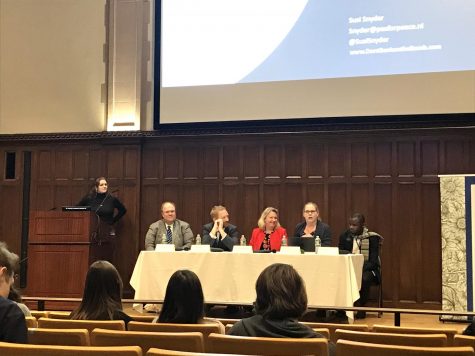
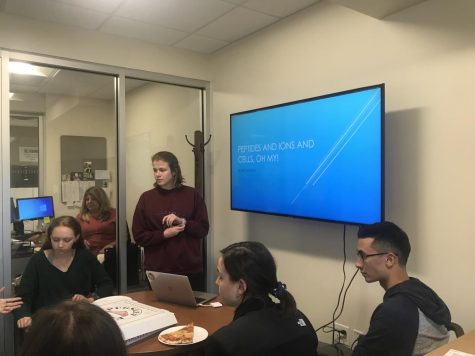

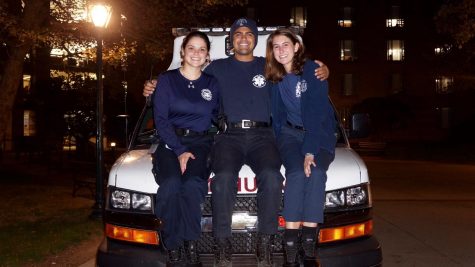
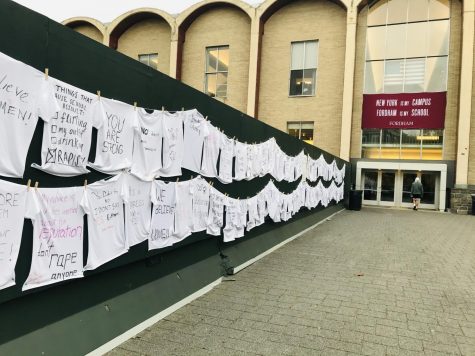


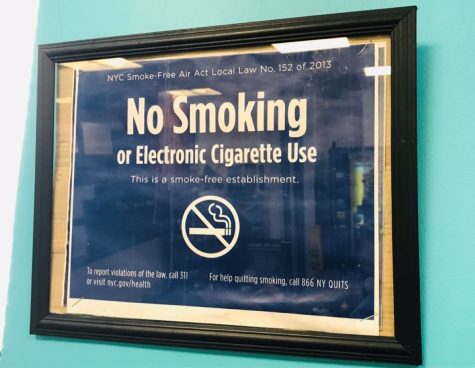
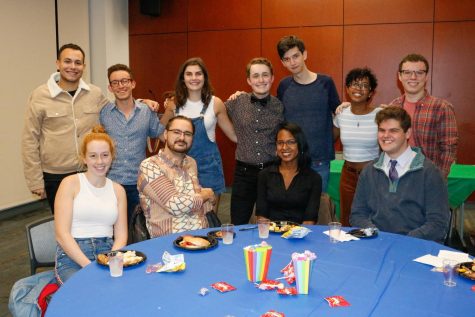
“according to a letter addresses to attendees” (addressed)
” researches smoking succession laboratory ” (cessation)
grammar!